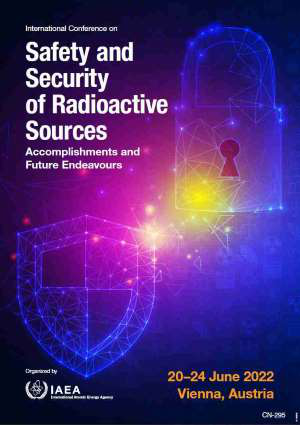Speaker
Description
-
Introduction
The first Nuclear Security Summit was held in Washington in 2010, and the participants have announced the construction of a national nuclear forensics library to develop national nuclear forensics capabilities. China was one of the summit participants which with a large number of nuclear applications in both military and civilian industries. This research focuses on the nuclear forensics working systems of China and domestic measures and international cooperation that China has conducted to improve its nuclear forensics capability for nuclear security. -
Nuclear Forensics Working Systems in China
2.1 Working systems, regulations and laws for nuclear forensics in China
There are four different government sectors are responsible for the regulation of nuclear and radioactive materials to handle accidents and combat crimes in China. In order to improve nuclear forensics ability for nuclear security, China has implemented several regulations for radioactive sources and facilities security management.
2.2 Technology agencies support nuclear forensics work systems in China
The State Nuclear Security Technology Centre (SNSTC) was founded in November 2011 has advanced technical equipment for the experiment of nuclear material analysis which was designed as a testbed for detecting the smuggling nuclear or radioactive materials.
2.3 Nuclear forensics library development in China
In order to improve the capacity of nuclear forensics analysis in the accidents and crimes related nuclear or other radioactive materials, the China Institute of Atomic Energy has conducted technology cooperation with the IAEA in developing the nuclear forensics database and analysis ability.
- Nuclear Forensics for Nuclear Security: the International Cooperation China Has Joined in
3.1 International multiple cooperation China has participated in
In order to advance its nuclear forensics capability to combat these crimes, China has participated in many international multiple organizations and ratified several international conventions or regulations for nuclear security and control and export of nuclear materials.
3.2 China-US bilateral cooperation on nuclear forensics for nuclear security
It was in 1995, leaders from nuclear weapons laboratories of the US and China established a Lab-to-Lab program to reduce nuclear risks in both countries by sharing technical information. This kind of cooperation can help China establish comprehensive signature databases for nuclear and other radioactive materials, particularly for high-risk nuclear materials.
- Conclusion: Key Findings in China’s Nuclear Forensics Capability Development Process
4.1 Achievements of Nuclear Forensics Capability Development in China
In domestic, China has built a reliable working system for nuclear forensics analysis in the past years. In addition, China has established a complete legal system for nuclear and radioactive materials regulatory control, which is favoring for nuclear forensics analysis procedure. With construction and operation of the State Nuclear Security Technology Centre in 2011.
4.2 Shortcomings of Nuclear Forensics Capability Development in China
China still does not have an individual sector which is authoritative and professional enough to conduct the whole procedure of nuclear forensics analysis to support the prosecution of nuclear and radioactive material related crime. China has not yet established an intact radioactive materials database.
4.3 What China can do more to develop nuclear forensics capability?
Firstly, China should advance its nuclear forensics working system by establishing a unique and professional administration to undertake all the works in nuclear forensics analysis procedure.
Secondly, China should finish the construction of a national nuclear forensics library as soon as possible and then let it be open for researchers and experts work on nuclear security policy and technology research.
Last but not least, China should remember that the higher level of being open and transparent in nuclear forensics technology and database, the greater improvement it can get in nuclear forensics capability development.
| Country OR Intl. Organization | china |
|---|

